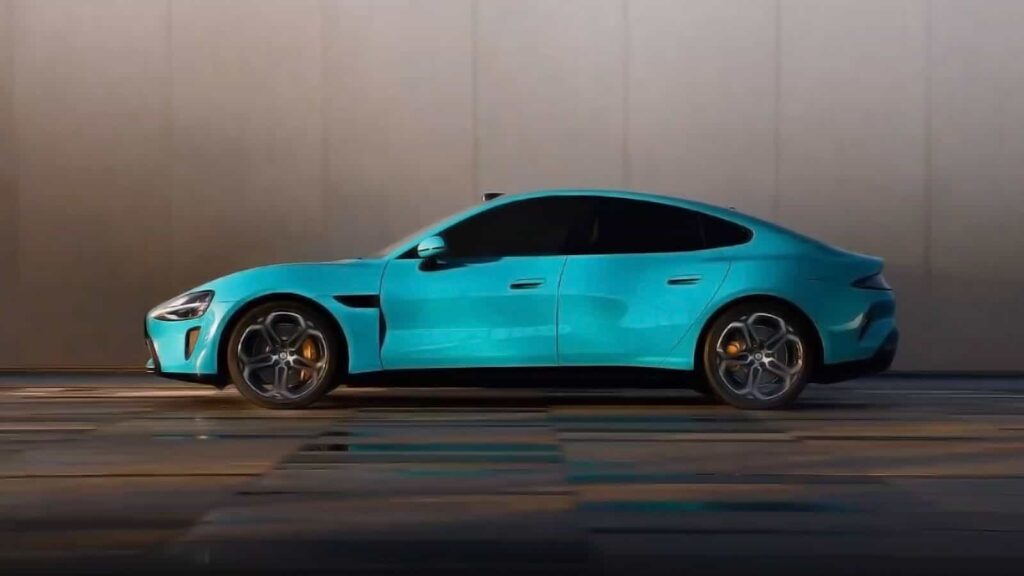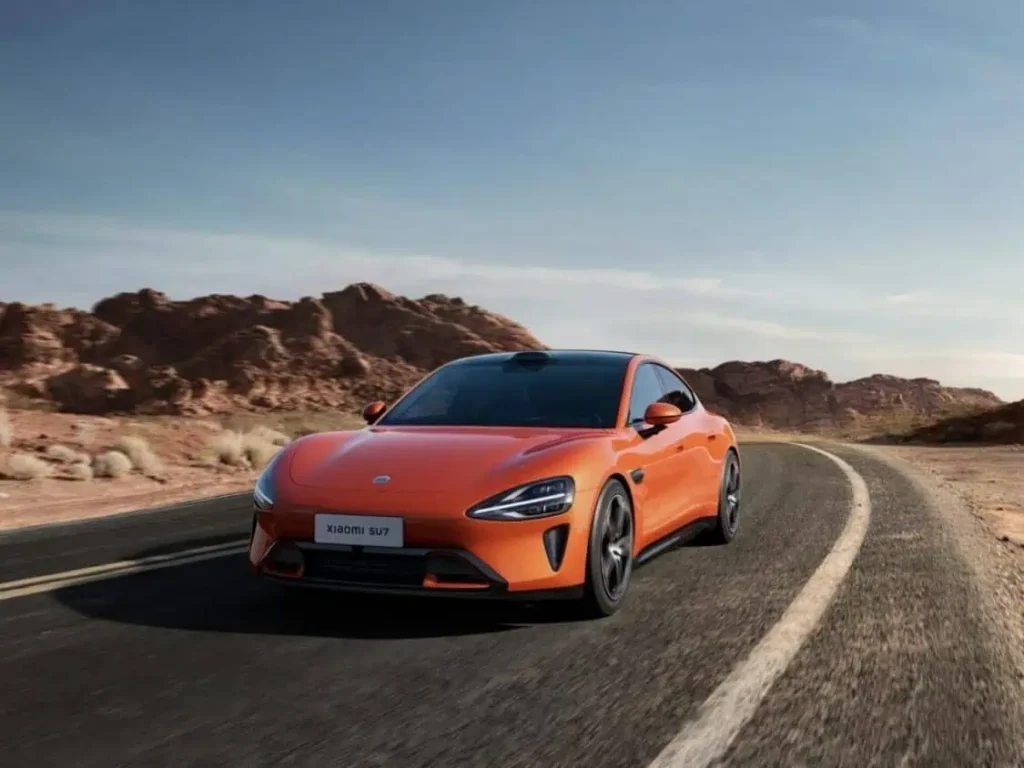China’s Xiaomi SU7 Is Changing the Global Electric Vehicle Game
Xiaomi is a well-known maker of consumer electronics in China. In March, the company made a groundbreaking and impressive leap into the global electric vehicle industry with the introduction of its sporty, high-tech electric sedan, the Xiaomi SU7. Xiaomi’s founder, Lei Jun, said that Xiaomi has a goal of becoming one of the world’s top five automakers in the next 15 to 20 years.
The Xiaomi Car’s Release Was Impressively Successful
The Xiaomi SU7’s price is approximately $30,000 to $40,000. The response to the release was overwhelmingly positive, with Xiaomi securing an impressive 50,000 orders for the Xiaomi SU7 within the first 27 minutes of sales.
The Xiaomi SU7 Pro and Max versions include integration with Hesai’s AT128 long-range lidar technology. This cutting-edge lidar not only empowers the vehicles with high-resolution perception capabilities but also significantly enhances their intelligent driving systems.
Hesai Technology is a global leader in the lidar industry, surpassing 300,000 units delivered in 2023. Reports suggest Hesai and Xiaomi are committed to deepening and continuing their collaboration.
The Xiaomi SU7’s pebble-inspired design incorporates the AT128 lidar into its structure, featuring 128 independent VCSEL lasers, providing unparalleled imaging capabilities and long-range detection. This ensures that the lidar complements the vehicle’s sleek aesthetics while improving its aerodynamics. The “watchtower style” placement of the lidar optimizes its utility without compromising the car’s elegance.
Beyond the aesthetics, the full-stack, self-developed technology architecture of the Xiaomi car underlines its innovative potential in the automotive industry, aiming to provide a driving experience that’s as intuitive and natural as possible.

Government Subsidies Have Established China as the World’s Premier EV Market
Significant government financial support spurred intense competition among a wide and expansive range of new Chinese electric car companies. While the bulk of sales for these vehicles remains within China’s borders so far, that is rapidly changing.
One example is Australia, which does not have trade barriers like the U.S. In Australia, deliveries of new cars from China are outnumbering those from South Korea, Germany, and the U.S. to become the third-biggest source of new vehicles. Those deliveries currently represent more than 15% of sales.
Chinese EV companies are now venturing into international markets by offering more affordable models. This strategic move poses a significant challenge to established European, Japanese, and American automotive companies, as they now face increasingly stiff competition.
The global automotive industry is at the cusp of a major shift, with Chinese EV makers leveraging competitive pricing and innovative technology to capture a substantial market share internationally. Other OEMs must try harder to lower prices and compete. Vertically integrating batteries is one solution.

The Secret to Chinese EV Success
Chinese EV maker BYD is the best-known leader in the Chinese EV industry. Xiaomi is expected to closely follow BYD’s business and production models. BYD, originally founded as a battery company in 1995, has evolved into a giant in the automotive industry.
BYD’s distinctive vertical supply chain system capitalizes on China’s lower labor costs to transform battery production from capital-intensive to labor-intensive operations. It also establishes a competitive advantage through reduced production costs and a robust, simplified supply chain.
Following its foray into the automobile sector, BYD has taken significant strides in developing a comprehensive automotive industry chain, placing a strong focus on core technology research and development. Achievements in the manufacture of essential components such as batteries, motors, and electronic controls are notable, further highlighted by the establishment of a large-scale, fully automated battery production line.
This vertical integration approach strengthens BYD’s position by enhancing its industrial chain resilience, which is particularly notable during global crises like the chip shortage.
How Other OEMs Will Compete with China
With the huge number of American EV battery factories coming online soon, American OEMs are expected to follow BYD’s model to offer lower electric vehicle prices. This, combined with a plentiful domestic supply of lithium, will lower electric vehicle prices even further to levels lower than ICE vehicles soon.
The Department of Energy estimates that California’s Salton Sea lithium could furnish batteries for over 375 million electric vehicles. In 2023, lithium prices were already dropping significantly globally, and the expansive domestic supply will drive those prices down even further in the U.S.

Electric Vehicle Marketing Consultant, Writer and Editor. Publisher EVinfo.net.
Services